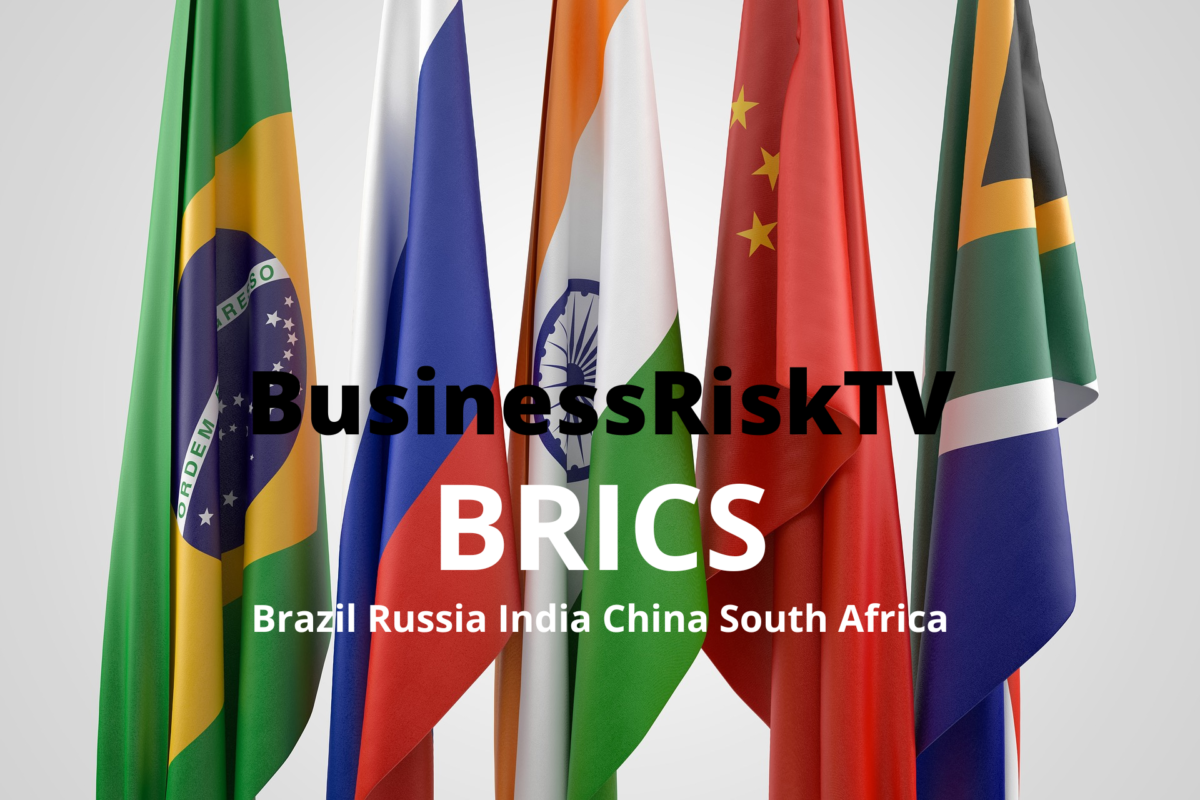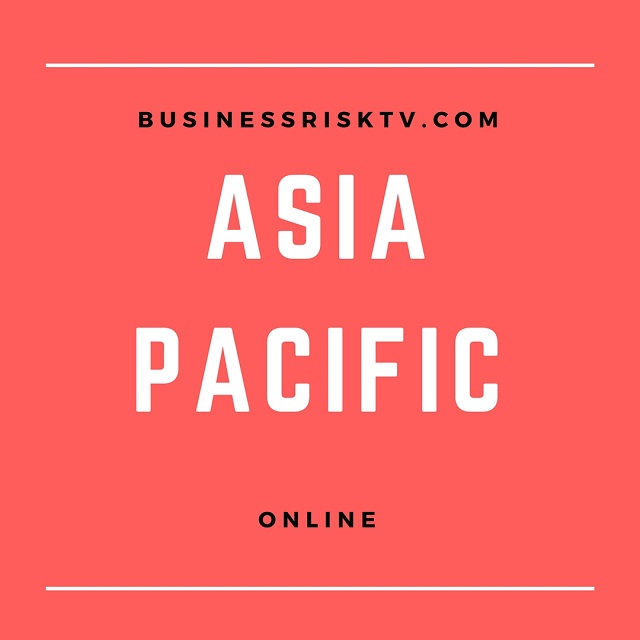How can business leaders inform their BRICS business decision-making better
BusinessRiskTV.com BRICS Business Risk Reviews Brazil Russia India China South Africa #BusinessRiskTV #ProRiskManager #BRICS #Brazil #Russia #India #China #SouthAfrica #Argentina #Iran #SaudiArabia #Ethiopia #Egypt #UnitedArabEmiratesUAE
Subscribe for free to BusinessRiskTV

BRICS Expands to 11 with Admission of 6 New Members
The BRICS bloc of developing nations has expanded to 11 with the admission of Argentina, Egypt, Ethiopia, Iran, Saudi Arabia, and the United Arab Emirates. The decision was made at the 15th BRICS summit, held in Johannesburg, South Africa, on August 24, 2023.
The expansion of BRICS is seen as a major step in the bloc’s efforts to reshuffle the global order. The bloc’s members represent over 40% of the world’s population and 25% of the global economy. With the addition of the six new members, BRICS will become even more diverse and influential.
The new members of BRICS bring a variety of strengths to the bloc. Argentina is a major agricultural exporter and has a strong manufacturing sector. Egypt is a regional power in North Africa and the Middle East. Ethiopia is a rapidly growing economy with a young and dynamic population. Iran is a major oil producer and has a strategic location in the Middle East. Saudi Arabia is the world’s largest oil exporter and has a powerful military. The United Arab Emirates is a financial and trade hub in the Middle East.
The expansion of BRICS is likely to have a significant impact on the global economy and geopolitics. The bloc is now better positioned to challenge the dominance of the United States and other Western powers. It is also likely to play a more active role in global affairs, such as climate change and trade.
The decision to expand BRICS was not without controversy. Some critics have argued that the bloc is becoming too large and unwieldy. Others have expressed concerns about the human rights records of some of the new members. However, the leaders of BRICS have dismissed these concerns, arguing that the bloc is committed to promoting democracy, development, and peace.
The expansion of BRICS is a major development that is likely to have a significant impact on the global order. The bloc is now well-positioned to play a more prominent role in global affairs. It will be interesting to see how BRICS evolves in the years to come.
The Significance of the New BRICS Members
The admission of six new members to BRICS is a significant development that has the potential to reshape the global order. The new members, Argentina, Egypt, Ethiopia, Iran, Saudi Arabia, and the United Arab Emirates, bring a variety of strengths to the bloc, including their large populations, growing economies, and strategic locations.
The addition of these countries will make BRICS more diverse and representative of the global community. It will also give the bloc a stronger voice in international affairs. BRICS is now well-positioned to challenge the dominance of the United States and other Western powers.
The new members of BRICS also have a number of shared interests. They are all developing countries that are seeking to grow their economies and improve the lives of their citizens. They are also all concerned about the rise of protectionism and unilateralism in the global economy.
The expansion of BRICS is likely to have a number of positive implications for the global economy. It will create new opportunities for trade and investment, and it will help to promote economic development in the developing world. It will also make the global economy more resilient to shocks and crises.
The expansion of BRICS is also likely to have a positive impact on global geopolitics. The bloc is now better positioned to play a more active role in resolving conflicts and promoting peace. It is also likely to be more effective in addressing global challenges such as climate change and terrorism.
Overall, the expansion of BRICS is a positive development that has the potential to make the world a more prosperous and peaceful place. It is a sign that the developing world is rising to challenge the dominance of the West.
The Challenges Facing BRICS
While the expansion of BRICS is a positive development, it also faces a number of challenges. One challenge is that the bloc is now so large and diverse that it may be difficult to reach consensus on important issues. Another challenge is that some of the new members have poor human rights records. This could damage the reputation of BRICS and make it more difficult for the bloc to achieve its goals.
Despite these challenges, BRICS has the potential to be a force for good in the world. The bloc can help to promote economic development, peace, and stability in the developing world. It can also help to challenge the dominance of the West and create a more just and equitable global order.
The future of BRICS is uncertain, but it has the potential to be a major player in the global arena. The bloc will need to overcome its challenges and learn to work together effectively if it is to achieve its full potential.
BRICS Summit August 2023
The 15th BRICS summit will be held in Johannesburg, South Africa on 22-24 August 2023. The theme of the summit is “BRICS and Africa: Partnership for Mutually Accelerated Growth, Sustainable Development and Inclusive Multilateralism”.
The summit will be attended by the leaders of Brazil, Russia, India, China and South Africa, as well as representatives from other BRICS countries and partner nations. The agenda for the summit is expected to include discussions on a range of issues, including:
- The global economic outlook and the impact of the COVID-19 pandemic
- Trade and investment
- Climate change and sustainable development
- Regional cooperation
- International security
Business leaders around the world can expect the BRICS summit to have a significant impact on the global economy. The BRICS countries are some of the fastest-growing economies in the world, and they are increasingly playing a leading role in global trade and investment. The summit is likely to provide a platform for the BRICS countries to discuss their shared economic interests and to coordinate their efforts to promote economic growth and development.
In addition to the economic agenda, the BRICS summit is also likely to address a number of other issues that are of interest to business leaders. These include:
- The development of new technologies and their impact on the global economy
- The need for greater cooperation between businesses and governments to address global challenges
- The importance of sustainable development and the need to protect the environment
The BRICS summit is a major event that will have a significant impact on the global economy. Business leaders around the world should pay close attention to the outcomes of the summit and to the implications for their businesses.
In addition to the economic agenda, the BRICS summit is also likely to discuss the issue of membership expansion. More than 40 countries have expressed interest in joining BRICS, and the summit could provide an opportunity for the BRICS countries to discuss the criteria for membership and to make a decision on whether to expand the group.
The inclusion of new members would strengthen BRICS and make it a more powerful force in the global economy. However, it is important to note that there are also some challenges associated with membership expansion. For example, it would be important to ensure that new members are committed to the BRICS principles and that they are able to contribute to the group’s work.
Overall, the 15th BRICS summit is a major event that will have a significant impact on the global economy. Business leaders around the world should pay close attention to the outcomes of the summit and to the implications for their businesses.
Here are some additional details about the theme of the 2023 BRICS summit and the countries that want to join BRICS:
- The theme of the 2023 BRICS summit, “BRICS and Africa: Partnership for Mutually Accelerated Growth, Sustainable Development and Inclusive Multilateralism”, reflects the growing importance of Africa to the BRICS countries. Africa is home to some of the fastest-growing economies in the world, and the BRICS countries are keen to increase their trade and investment ties with the continent.
- The countries that have expressed interest in joining BRICS include: Argentina, Iran, Saudi Arabia, the United Arab Emirates, Cuba, Democratic Republic of Congo, Comoros, Gabon, and Kazakhstan. These countries are all looking to gain access to the BRICS market and to benefit from the group’s economic and political influence.
The BRICS summit is a significant event that has the potential to shape the global economy. Business leaders around the world should pay close attention to the outcomes of the summit and to the implications for their businesses.
BRICS Currency Pros and Cons
The BRICS countries – Brazil, Russia, India, China, and South Africa – are some of the largest and fastest-growing economies in the world. To further boost their economic cooperation, the idea of creating a common currency for these countries has been floated for several years. In this article, we will explore the pros and cons of a BRICS currency for these countries.
Pros of a BRICS currency:
- Improved trade relations: One of the main advantages of a common currency is that it can increase trade between BRICS countries. By eliminating the need for currency conversion, transactions between these countries can become smoother and faster. This can lead to greater trade volume and a stronger economic relationship between the BRICS nations.
- Reduced transaction costs: A common currency would reduce the costs of currency conversion and cross-border transactions. This would make it easier and more cost-effective for businesses in the BRICS countries to trade with each other, which could increase economic growth and create new opportunities for trade and investment.
- Increased economic stability: A common currency would provide more stability for the economies of the BRICS countries. By reducing the volatility of currency exchange rates, businesses would be able to better plan for the future and make more informed decisions. This could lead to increased investment and economic growth in the BRICS countries.
- Greater financial integration: A common currency would foster greater financial integration between the BRICS countries, making it easier for them to access each other’s financial markets. This could lead to increased cross-border investment and the development of new financial products and services.
Cons of a BRICS currency:
- Political difficulties: The creation of a common currency would require significant political cooperation and coordination between the BRICS countries. This could be difficult to achieve, as each country has different political and economic systems and priorities.
- Economic differences: The economies of the BRICS countries are at different stages of development, and some are more advanced than others. This could make it difficult to maintain a common currency, as the economies of the BRICS countries may evolve at different rates and in different directions.
- Lack of monetary independence: By adopting a common currency, the BRICS countries would give up their monetary independence and would no longer be able to use monetary policy to address their own economic challenges. This could limit their ability to respond to economic shocks and difficulties.
- Need for significant structural reforms: To make a common currency work, the BRICS countries would need to undertake significant structural reforms to ensure that their economies are compatible with each other. This could be a long and difficult process, and there is no guarantee of success.
In conclusion, the idea of a BRICS currency has both potential advantages and drawbacks for the BRICS countries. While it could lead to greater economic cooperation, stability, and growth, it would also require significant political cooperation, structural reforms, and give up monetary independence. Ultimately, the decision of whether or not to adopt a common currency will depend on a careful consideration of the pros and cons, and a willingness to work together towards a common goal.
Unlocking the Potential: The Pros and Cons of a BRICS Currency for Global Business Leaders
A business plan for non-BRICS country businesses to protect and grow their business in or with BRICS countries should include the following steps:
- Market research: Conduct thorough market research to understand the economic and political conditions, cultural differences, and consumer preferences in each of the BRICS countries. This will help you tailor your business strategy to each market.
- Localisation: To succeed in a foreign market, it is essential to localize your business operations. This includes adapting your products and services to the local market, localising your marketing and branding efforts, and building local partnerships.
- Local partnerships: Building local partnerships with suppliers, distributors, and customers is critical to success in the BRICS countries. This will help you overcome challenges such as language barriers, cultural differences, and regulations.
- Risk management: Doing business in foreign countries comes with inherent risks, such as currency fluctuations, political instability, and economic uncertainty. To mitigate these risks, it is important to have a robust risk management plan in place. This can include currency hedging, insurance, and contingency planning.
- Cultural sensitivity: To succeed in the BRICS countries, it is important to understand and respect the local culture and customs. This includes adapting your communication and business practices to local norms, and avoiding cultural missteps that could harm your reputation.
- Compliance: Each of the BRICS countries has its own unique regulations and legal requirements. It is important to understand and comply with these regulations to avoid costly penalties and legal disputes.
- Continuous monitoring: Doing business in foreign countries requires ongoing monitoring and adaptation. Keep track of market trends, political and economic conditions, and consumer preferences in each of the BRICS countries to ensure that your business is positioned for success.
By following these steps, non-BRICS country businesses can protect and grow their business in the BRICS countries, taking advantage of the tremendous economic opportunities that these markets offer.
What do BRICS countries want to export and import
The BRICS countries, which include Brazil, Russia, India, China, and South Africa, are among the largest and fastest-growing economies in the world. As such, they have a diverse range of exports and imports. Here’s a general overview of what each of these countries tend to export and import:
- Brazil: Brazil is a major exporter of commodities such as iron ore, soybeans, petroleum, and coffee. It imports a range of goods including machinery, electronic equipment, vehicles, and chemicals.
- Russia: Russia is one of the world’s largest exporters of oil and natural gas, as well as other commodities such as metals and timber. It imports a variety of goods including machinery, electronics, and consumer goods.
- India: India is a major exporter of textiles, pharmaceuticals, and information technology services. It imports a range of goods including machinery, crude oil, and precious metals.
- China: China is the world’s largest exporter of manufactured goods, including electronics, machinery, and textiles. It imports a range of goods including crude oil, raw materials, and food products.
- South Africa: South Africa is a major exporter of precious metals such as gold and platinum, as well as other commodities such as coal and iron ore. It imports a range of goods including machinery, vehicles, and chemicals.
It’s important to note that the exports and imports of each of these countries can be influenced by a range of factors, including domestic and global economic conditions, trade agreements, and government policies. Nevertheless, these countries play an important role in the global economy and their exports and imports are closely watched by businesses and governments around the world.
More business risk management articles videos and deals
The West Is Broken Not The Global Economy?
BRICS Business Risk Review Magazine Live








